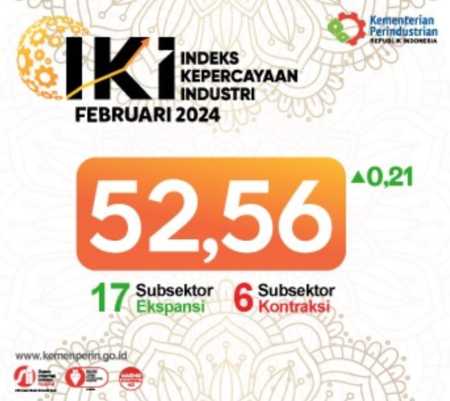HIMA asks 4 Critical Safety Questions for post-COVID-19 Success in Smart and Safe Automation
By : Friedhelm Best | Thursday, July 23 2020 - 16:40 IWST

Friedhelm Best - Vice President Asia Pacific, HIMA (Photo by HIMA)
INDUSTRY.co.id - Now that the world is slowly re-opening industries to enable the recovery of badly hit economies and save jobs, the key question remains on how best to move forward in automating as much as possible, while retaining jobs, and keeping facilities and employees safe.
Safety and automation go together
Industrial plants, including those of major hazards installations such as petrochemical, chemical and nuclear power plants, are increasingly automated, with human operators at the helm of controls and oversight, while maintaining a high level of safety and cybersecurity, especially in the highly connected world.
There is now an increasing need for large and smaller plants alike, to automate while catering to safety regimes to protect human lives. The Singapore Safety Regime is one such example of a national recommendation for safety case deployment.
As the COVID-19 crisis exacerbated the need for remote working, especially in highly populated city states like Singapore, or other dense metropolitan areas. It is imperative to plan for regulatory compliance or meeting best practices in industrial safety and cybersecurity, while also catering for efficiency and profitability.
Future-proofing is the key
In a typical lifecycle of a factory or plant, it is envisaged that it should last at least 30 years or even up to 50 years or longer.
But, all things do deteriorate over time, at different rates. Safety controllers, used for emergency shutdowns and other safety-related functions, can be critical to a safe factory and plant operation, and need to be especially monitored for aging. For plants that have implemented automated safety controllers containing electronic components (known as safety instrumented systems or SIS), the maximum lifespan for such electronic devices may be up to 20 or so years, which means that in the safety lifecycle of a plant, there will be times when such SIS will need to be updated, changed or modernized for newer versions.
Let us not forget that there are also times when compliance, standards and technologies change and obsolete components need to be replaced. Nothing is meant to last forever. With the increasing frequency and complexity of cybersecurity attacks on plants and infrastructures, the need for hardware components and scalable and remote-capable software to provide for a current and future-proof cybersecurity defense shield around the plants is paramount.
4 key questions to ask about limitations in your safety lifecycle
To reduce risks, and to protect your plant's safety systems from obsolescence, there are some tough questions to ask.
1. Standards. Does your safety and cybersecurity system comply with the current industry standards such as IEC 61508 (foundation), IEC 61511 (functional safety) and IEC 62443 (IT security) Are you carrying out periodical safety assessments on your systems Do you update your safety requirements according to your operational experience.
2. Documentation. Do you have a management of change procedure available Is your documentation updated accordingly and as required? When we talk about updates, are there any changes or innovations to the product or to the devices that you are using to improve operational continuity, safety and security, such as alerts, vulnerabilities, or available updates.
3. Expertise. Do your people have the expertise to react and mitigate failures, manage and maintain installations.
4. Components. Do your people keep track of the availability of spare parts and components for contingencies and ensure they are still viable For example, electrolytic capacitors or relays that go through regular wear-and-tear may need to be monitored for viability, and refurbished or exchanged before they malfunction. Are your people able to find technology partners who can deliver spare parts for at least 10 years to protect your installations from emergencies.
If you can answer "Yes" to these questions, you are already equipped with the foundation to detect and react to automation and safety factors as you re-open your factory or plant. If not, this COVID-19 period may just be the window you need to plan for your next leap of automation and safety implementation.
Read Also
Marketing in Motion: Behind the Promotion Strategy Jakarta-Bandung…
Rare Earth Minerals Finds in India Likely to Inform Future Lithium…
Take the pressure off coding for your developers
What is International Marketing? How did Start-Up Company Implement…
Five Applicable Marketing Tactics for Startup Company
Today's Industry

Senin, 29 April 2024 - 05:02 WIB
One of the UK’s Most Established Schools Chooses Jakarta for Their Latest Opening
Wellington College Independent School Jakarta (WCIJ) is thrilled to announce its grand opening in September 2024! As the first private UK school to open in Indonesia, WCIJ, a pioneering co-educational…

Selasa, 23 April 2024 - 10:29 WIB
President Jokowi Reaffirms Commitment to Farmers’ Welfare
President Joko “Jokowi” Widodo on Monday (04/22) inspected corn harvest in Boalemo regency, Gorontalo province. “Our corn import has decreased significantly from 3.5 million tonnes to…

Rabu, 28 Februari 2024 - 12:47 WIB
Carsurin and NBRI Strengthen Strategic Alliance to Propel Indonesia’s EV Industry
PT Carsurin Tbk ("Carsurin") and the National Battery Research Institute ("NBRI") are pleased to announce the signing of a pivotal Strategic Alliance Agreement (SAA), marking a significant advancement…

Rabu, 21 Februari 2024 - 08:43 WIB
Gov’t to Continue Disbursing Rice Assistance
President Joko “Jokowi” Widodo has ensured that the Government will continue rolling out the rice assistance program for low-income families. The President made the statement when handing…

Rabu, 21 Februari 2024 - 08:40 WIB
Bapanas Head Ensures Availability of Rice Stock Ahead of Ramadan
The National Food Agency (Bapanas) has ensured the availability of rice for the fasting month of Ramadan and Eid al-Fitr 1445 Hijri/2024 CE. “We believe that there is enough rice for the fasting…

















News Comment